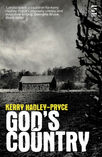A Gifting from Baudelaire
- Kerry Hadley
- Dec 7, 2017
- 3 min read
I've been wandering. Formulating, I like to call it. I've read the latest literature on psychogeography (namely, Richardson) and literary psychogeography (Kent Chapin Ross and Catharina Loffler and I realise that their kick on psychogeography is that the landscape in which it takes place is, essentially, a passive thing, and that the reactions are the flaneur/flaneuses'. I recently picked up this quote from Baudelaire: 'The crowd is his element, as the air is that of birds and water of fishes. His passion and his profession are to become one flesh with the crowd. For the perfect flâneur, for the passionate spectator, it is an immense joy to set up house in the heart of the multitude, amid the ebb and flow of movement, in the midst of the fugitive and the infinite. To be away from home and yet to feel oneself everywhere at home; to see the world, to be at the centre of the world, and yet to remain hidden from the world—impartial natures which the tongue can but clumsily define. The spectator is a prince who everywhere rejoices in his incognito. The lover of life makes the whole world his family, just like the lover of the fair sex who builds up his family from all the beautiful women that he has ever found, or that are or are not—to be found; or the lover of pictures who lives in a magical society of dreams painted on canvas. Thus the lover of universal life enters into the crowd as though it were everywhere rejoices in his incognito an immense reservoir of electrical energy. Or we might liken him to a mirror as vast as the crowd itself; or to a kaleidoscope gifted with consciousness, responding to each one of its movements and reproducing the multiplicity of life and the flickering grace of all the elements of life.'— Charles Baudelaire, "The Painter of Modern Life", (New York: Da Capo Press, 1964). Orig. published in Le Figaro, in 1863.
I like that phrase, 'gifted with consciousness', and I had a lightbulb moment. Perhaps the landscape of the Black Country here, is, and should be, represented as an active part of psychogeography. Perhaps it is the wandering flaneur/flaneuse. We all know that the Black Country and it's precise location is in contention, so if we consider it as the actor, rather than the acted upon, perhaps we/I can see it as something that 'everywhere rejoices in his incognito' and 'gifted with consciousness, responding to each one of its movements and reproducing the multiplicity of life and the flickering grace of all the elements of life.' I like that. And because I like it, it has given this novel a new lease of life. There is a psychoanalytical theory, by Sandor Ferenczi that links very well to this. He suggested - and stay with me on this one - that homoerotic desire in men, often remained active in men, even though society demanded it be suppressed (this was Freud's time) and that this desire was displaced in feelings and ways of behaving which were 'approved of' and accepted in society, resulting in 'obsessively heterosexual' behaviour. In order to free themselves from men, they became slaves of women. I think I can see how this sense of wanting to be free of societal 'norms' can link to the needs of the flaneur (or flaneuse). It's made me think about what I'm writing, about how what I've written so far, is mirroring this, so I'm going with the flow of it. And I'm wondering if one of the questions I might be asking in my thesis is: How can a methodology based on psychogeography be used to approach Black Country writing and literary representations of urban experiences? Which is a 'borrowing' from Loffler, who, in her thesis asks: How can a methodology based on psychogeography be used to approach literary cities and literary representations of urban experiences?









Comments